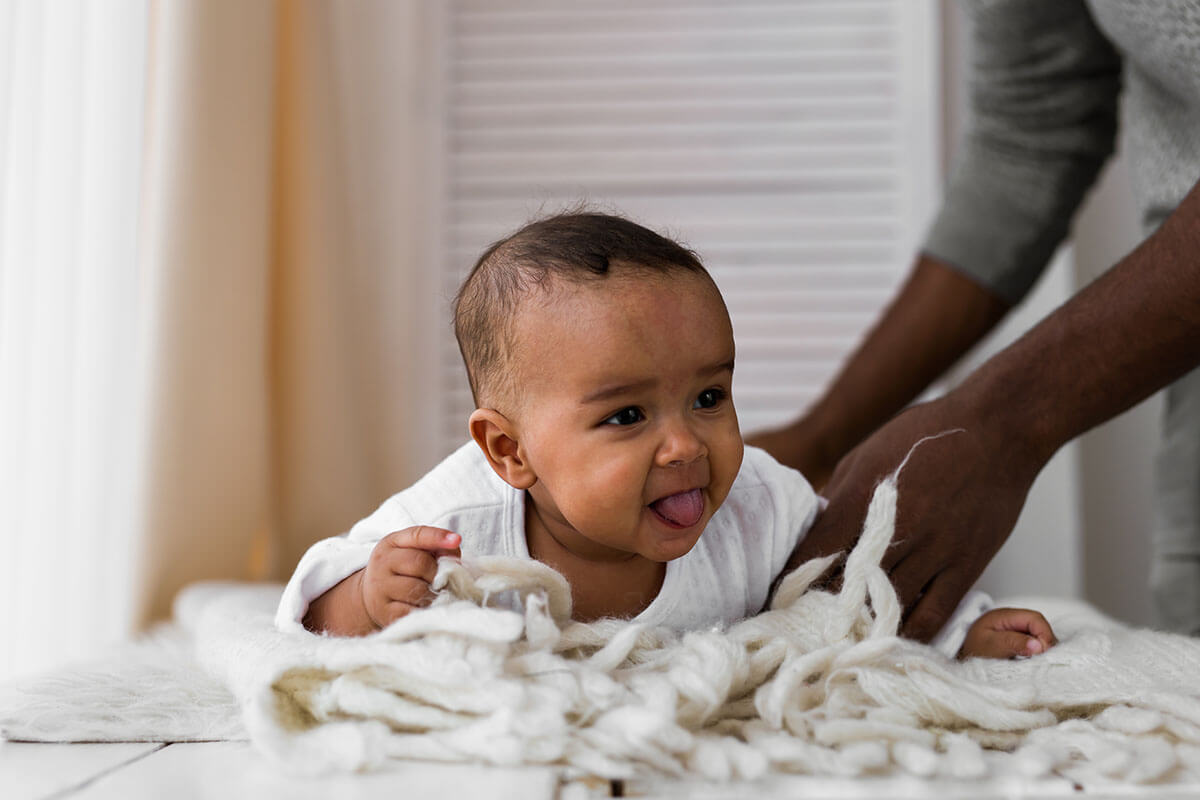In month 3 to month 6, babies learn to distinguish between different emotions and learn to respond to them. A child begins to babble and can also now interrupt eye contact and babbling for the purpose of looking at other things around him. Social expectations are developing, which becomes well visible during contact games, for example. Babies at this age show a clear reaction to their own name by interrupting their play and turning in the direction of the sound, for example. Social expectations also develop, or child has expectations around the behavior of others and can predict what others will do. Baby distinguishes between facial expressions that reflect different emotions and child responds to others' emotions.
Differentiation Phase
Month three to about month 8. The child starts to turn from warmth and security to the outside world and faces it with pleasure and confidence. The baby expects others to be like mother. The child begins to compare. The child will also focus more on how mother feels. The baby becomes increasingly curious about others and objects (such as objects or simple toys).
Separation-individuation phase
Mahler (1975) describes that the normal symbiotic phase ends here. The word separation means that the child distinguishes between himself and the mother. Individuation means that a child begins to develop an initial identity, with his/her cognitive skills (such as attention and concentration).beginning to develop. According to Mahler, this stage distinguishes between several sub-stages, with the first sub-stage in which the child becomes more alert to what is happening around him/her in the outside world. The child begins to cautiously explore, but retains the parents as the main point of orientation. It is as if a child is like a chick climbing out of the egg he has been in with his mother.
Can I trust the world?
According to psychologist Erik Erickson, the first two years lay the foundation for basic trust in life, in others and in the world. When parents are able to properly meet the baby's needs, the child gains a solid foundation. A child gains a strong sense of trust in others, but therefore also in himself. The child relies heavily on parents to be nurtured and reassured. The building blocks of the sense of trust are warmth, regularity and a good dose of love and affection. If parents are not sufficiently able to establish a firm and secure environment, a child's development is at risk. Babies become frustrated or withdraw. And without being able to put words to it, they develop a lack of self-confidence. If parents are not sufficiently able to provide basic confidence, the foundation is laid for the child to feel that the world is unpredictable and even dangerous. It should be added that if at times a child's needs are not met and the environment is not completely safe, of course this is not a problem. Children are thus also prepared for a world that is not always safe.
The milestones of the fifth month:
 The baby can hold its head upright well.
The baby can hold its head upright well.
 The baby pushes himself up and lifts his chest off the ground.
The baby pushes himself up and lifts his chest off the ground.
 The baby sometimes begins to crawl by pushing his hands on his buttocks.
The baby sometimes begins to crawl by pushing his hands on his buttocks.
 The baby can put objects in his mouth.
The baby can put objects in his mouth.
 Babies can get angry if something is taken away from them.
Babies can get angry if something is taken away from them.
 Baby can sit alone for a second or 2.
Baby can sit alone for a second or 2.
 Baby turns his head in the direction of someone speaking.
Baby turns his head in the direction of someone speaking.
 The first baby teeth may come through.
The first baby teeth may come through.

